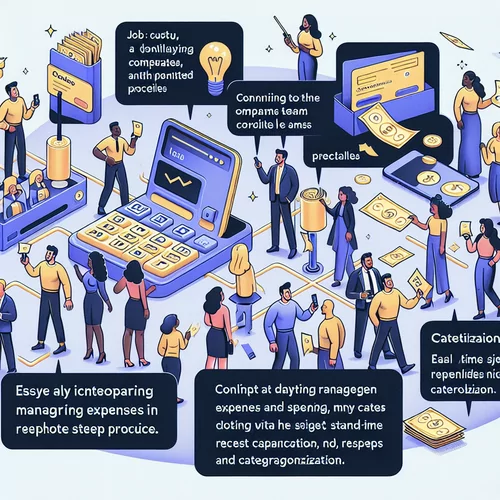Venturing into global business endeavors frequently requires maneuvering through the subtle realm of tipping around the world. Whether you’re a globe-trotting executive or a frequent traveler, comprehending the nuances of tipping across borders is crucial. Let’s delve into the complexities of international tipping customs and their potential impact on your professional image.



Deciphering Tipping Practices Worldwide
Why Tipping Varies So Much Globally
From Melbourne’s laid-back cafes to the bustling streets of New York, tipping customs can be as diverse as the cultures themselves. In the US, a generous 15-20% tip is commonplace. In many Asian countries, tipping may be a rarity or even frowned upon. This disparity often stems from differences in wage structures and cultural expectations.
How to Tip When Abroad on Business
Imagine the scenario: you’ve just concluded a successful negotiation over dinner, and the bill arrives. In this moment, your tipping decision could speak volumes about your cultural sensitivity. A 10% tip might be generous in Berlin but excessive in Tokyo. When in doubt, rounding up a taxi fare or leaving a small token for hotel staff is a universally safe bet.
Appreciation vs. Insult: Navigating the Tipping Minefield
While tipping can be a sign of appreciation in many locales, in others, it’s a potential faux pas. Research is your ally here. A quick consultation with a local colleague or a small business expense report can provide invaluable insights into when and how much to tip.
The Business of Tipping: More Than Just Spare Change
In the US, tipping supplements a waiter’s income. But in many countries, service staff are paid a living wage, making tipping unnecessary. Understanding these economic underpinnings can prevent awkward situations and ensure you’re perceived as a well-informed traveler.
Five Tipping Commandments for the Global Business Traveler
- Research is Key: Just as you’d learn basic greetings, familiarize yourself with local tipping etiquette.
- Regional Rules Rule: Tipping expectations can vary widely; when in doubt, a modest 10% in a restaurant or a rounded-up cab fare is often safe.
- Connect Through Customs: Engage with locals about their tipping practices—it’s a chance to bond and show respect for their culture.
- Cash is King: While digital payments are on the rise, tipping in cash ensures your gratitude goes directly to the service provider.
- Embrace Local Norms: Resist the urge to impose your home country’s customs; adapt and show appreciation for local practices.
Integrating Tipping into Your Expense Management
For businesses with teams in the field, managing tipping expenses can be a logistical challenge. This is where Clyr shines, streamlining the expense management process and integrating seamlessly with major platforms like QuickBooks and NetSuite. With Clyr, tracking those international gratuities becomes a breeze, ensuring your team’s spending stays as polished as their business etiquette.
When Technology Meets Tipping: A Modern Approach
As digital payments become increasingly prevalent worldwide, it’s essential to remain informed of how technology intertwines with tipping around the world. While traditional card swiping remains common in certain regions, chip and contactless payments are gaining dominance in others. Clyr’s platform adeptly adapts to these advancements, enabling business travelers to seamlessly oversee expenses regardless of their location.
Why Tipping Shouldn’t Be an Afterthought in Business Travel
Tipping isn’t just about leaving a few coins on the table; it’s a reflection of your company’s values and your personal professionalism. By handling it with care, you demonstrate cultural awareness and respect—qualities that can enhance your business relationships and reputation.



Embracing Cultural Sensitivity Through Tipping
As a business traveler, your actions, including how you tip, are often observed by clients and colleagues. A misstep in tipping can be more than a social faux pas; it can impact professional relationships. By embracing cultural sensitivity and understanding the nuances of global tipping practices, you position yourself as a respectful and savvy international businessperson.
Embracing Digital Tipping Dynamics Around the Globe
As the world gravitates towards digitalization, the landscape of tipping undergoes a similar transformation. Many countries are witnessing a transition from the traditional cash gratuity to digital alternatives. This shift holds particular significance for business travelers seeking to monitor expenses and facilitate reimbursements. Adapting to these digital shifts not only simplifies the tipping process but also ensures that individuals are prepared without relying solely on physical currency.
For instance, mobile payment platforms such as Alipay and WeChat Pay have fundamentally reshaped tipping in China, empowering users to tip directly through their mobile devices. Similarly, in the United States, apps like Venmo and Square Cash facilitate instant cashless transactions. Business travelers should be ready to embrace these automated expense reporting methods, which can be seamlessly tracked and managed through platforms like Clyr.
Understanding the Local Tipping Culture
When traveling for business, it’s not just about what you tip, but how you tip. In Japan, for example, tipping is not customary and can sometimes be seen as rude. Instead, a polite bow and a heartfelt thank you are the preferred ways to show appreciation. On the other hand, in countries like the United States, not tipping can be considered extremely discourteous.
Understanding these cultural nuances is crucial. Here’s a quick guide to help you navigate the tipping culture in various regions:
- In Europe, a service charge is often included in the bill, but leaving a small additional tip is common courtesy.
- In Latin America, tipping is expected, and 10% is standard for good service.
- In the Middle East, tipping is seen as a part of life, with 10-15% being standard in restaurants.
- In Africa, tipping practices can vary widely, but a 10% tip is generally appreciated in tourist areas.
Remember, these are just guidelines, and it’s always best to research or ask a local contact for advice.
Expense Management in the Age of Global Tipping
Keeping track of tips across different countries can be a headache for business travelers and their finance departments. This is where expense management software comes into play. With platforms like Clyr, you can easily capture and categorize tips, ensuring that all your business expenses are accounted for.
Moreover, using a expense management software for small business can help you adhere to your company’s expense policy. Whether it’s setting limits on the amount that can be tipped or ensuring that tips are allocated to the right business accounts, these tools are indispensable for modern business travel.
Corporate Responsibility and Tipping Practices
Corporate responsibility extends to the realm of tipping as well. Companies need to be aware of the implications their tipping policies have on their reputation and on the local economies they engage with. Over-tipping can distort local markets, while under-tipping can reflect poorly on the company’s image.
It’s important for businesses to establish clear guidelines for their employees. This not only helps in maintaining consistency but also ensures that the company’s values are upheld. A responsible tipping practice is one that respects local customs and contributes positively to the local community.



Enhancing Business Relationships Through Tipping Etiquette
While seemingly minor, gratuity plays a pivotal role in international business travel, significantly influencing rapport-building. A well-timed and culturally sensitive tip can subtly convey your regard for local customs and meticulousness. Conversely, an inappropriate tipping gesture has the potential to not only mar a dining experience but also harm a burgeoning business alliance. It’s crucial to acknowledge that tipping extends beyond the service industry; it is a gesture that resonates in the executive sphere, where relationships are paramount.
For instance, during a crucial business meeting in Dubai, renowned for its hospitality culture, a generous tip can mirror your company’s commitment to magnanimity and mutual esteem. Conversely, in Japan, where tipping is atypical, refraining from leaving an additional gratuity can showcase your comprehension and admiration of local business decorum.
Gratuity Guidance for Unique Business Situations
While customary tipping scenarios like dining and transportation are well-established, there are atypical business circumstances where tipping norms are less defined. For instance, when attending a private business function with a coat check service, determining whether to tip can be ambiguous. In North America, a modest gratuity is customary, but the same may not apply in Europe.
Here’s a brief list to guide you through some of these uncommon scenarios:
- Coat checks at events: A small tip is appreciated in the US and Canada, but not expected in Europe.
- Private drivers or chauffeurs: A 10-15% tip is customary in the US. Fixed amount may be more appropriate in Europe.
- Personal concierge services: For exceptional service or difficult requests, a tip is a nice gesture and varies by region and level of service.
When faced with an unusual tipping situation, it’s best to observe what others are doing or discreetly inquire with a trusted local contact.
Empowering Your Team with International Tipping Knowledge
As a business leader, it’s not enough to master the art of tipping yourself; your entire team should be equipped with this knowledge. Providing training or resources on international tipping etiquette can prevent uncomfortable situations and ensure that your team represents your company well. Consider incorporating a session on cultural sensitivity, which includes tipping practices, into your team’s pre-travel briefings.
Leveraging tools like expense management software for small business can help your team track and manage their tipping expenses. Ensuring they align with company policies and cultural norms.
Forecasting the Evolution of Global Tipping Practices
The future of tipping is as dynamic as the cultures that shape it. With the rise of digital payment methods, we may see a shift towards inclusive service charges or living wages. This could eliminate the need for tipping altogether in some regions. In places where tipping remains an integral part of the service industry, we might witness an increase in digital tipping solutions. That make the process more seamless and transparent.
Business travelers should stay informed about these trends and be adaptable. As the landscape of global gratuities evolves, so too should our approach to tipping as a reflection of cultural respect and business acumen.
Real-World Lessons: Tipping Successes and Faux Pas
Learning from real-world experiences can be invaluable. Consider the case of a business traveler who, unaware of the local customs in South Korea, left a generous tip at a traditional restaurant. The gesture was politely declined, and the traveler learned an important lesson in cultural sensitivity. On the flip side, a traveler who took the time to learn about the tipping culture in Egypt was able to navigate various services smoothly, leaving a positive impression on local partners.
These anecdotes underscore the importance of preparation and the impact that understanding—or misunderstanding—tipping etiquette can have on international business relations.



In conclusion, tipping is more than a transactional gesture; it’s a nuanced element of international business etiquette that can influence relationships and reputations. By staying informed, embracing technology, and educating your team, you can navigate the complexities of global tipping with confidence. With Clyr at your disposal, managing the financial aspect of tipping becomes a seamless part of your travel experience. This allows you to focus on the relationships that drive your business forward.